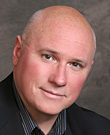SpeakerNet News Compilations
Master of Ceremonies Tips
Here is the compilation of master of ceremonies tips I received after my inquiry.
— Sheryl Roush
I’ve been an emcee for a few gigs — and being a female doesn’t always put me as a first choice in the stereotyping! I do wear a black tuxedo (women’s style — classy) with red bow tie and cummerbund, with heels.
Tips:
- Look the part to begin with! (whether male or female) — it ADDS to the show ambiance.
- Interview people in the audience about this event — that night — they are already there — dressed up and ready to have fun! I did this at a large retirement roast for the big wig. During the happy hour, I walked around and interviewed his friends and colleagues, asking: "If you could describe Greg in one word, what would it be?" People loved it — got them in the mood for the event — and were thrilled how those words (quoting the individuals) were used throughout the presentation and introductions.
What doesn’t work? Like ANY presentation, to show up unprepared — either by not knowing your subject (or roastee), your audience, or not knowing your material!
— Ronald P. Culberson
I speak on humor and I often do "master of ceremony-ing". I have found several things that work well:
- Research all of the people/programs you will introduce. Find out anything you can so that your introduction is not canned but sounds more like you know the people well.
- Plan to use humor and interesting comments as segues from one person/program to the next. I have a database of jokes/stories/quotes and I find the ones that fit with the topic or person that I am introducing and then use it as a segue.
- Comment on what just happened. Nothing is worse than for something to happen on stage and the emcee goes right on with the next introduction as if he/she missed the point. I make it a rule to find something humorous or meaningful about the previous person/event when I come back on stage and I use that to begin my transition to the next introduction.
- Keep it short. If the emcee takes too much time, it takes the focus away from the event. That doesn’t mean that the emcee can’t be funny and meaningful but it should always support the main event.
— Michael D. Lee, CSP
Most speakers’ calendars are pretty empty around the holidays while mine is fully booked because I emcee corporate holiday parties earning as much or more than I usually earn for a keynote speech.
I believe that the job of the emcee is to be “invisible.” We should make everyone else the “stars,” make the event fun and keep the program on schedule. Know your audience and be as helpful as possible to the company you are working for.
— Al McCree
Probably the biggest tip for emcees is to tell the client that as emcee, during the event, you will only answer to one person and you will only make changes in the program if that one person approves. This reduces confusion and makes life a lot easier for the emcee. Every single emcee program I have done has gone smoothly as a result.
 These tips and many others are included in our booklet “How to Be a Great Emcee,” available for download for only $4.95.
These tips and many others are included in our booklet “How to Be a Great Emcee,” available for download for only $4.95.
We have collected these tips from top professional speakers who know how to run a meeting successfully.
Add this booklet to your shopping cart.
 Mark Standriff, who makes a good income as an emcee, did a program with us called “Add to Your Speaking Revenue as a Professional Emcee.” He offers advice for how to do a first-rate job, as well as ideas on how you can boost your own income as the emcee for organizations holding meetings. You can get more information about our interview with Mark.
Mark Standriff, who makes a good income as an emcee, did a program with us called “Add to Your Speaking Revenue as a Professional Emcee.” He offers advice for how to do a first-rate job, as well as ideas on how you can boost your own income as the emcee for organizations holding meetings. You can get more information about our interview with Mark.
SpeakerNet News is produced by Rebecca Morgan and Ken Braly. It is not affiliated with the National Speakers Association. Send comments or suggestions
